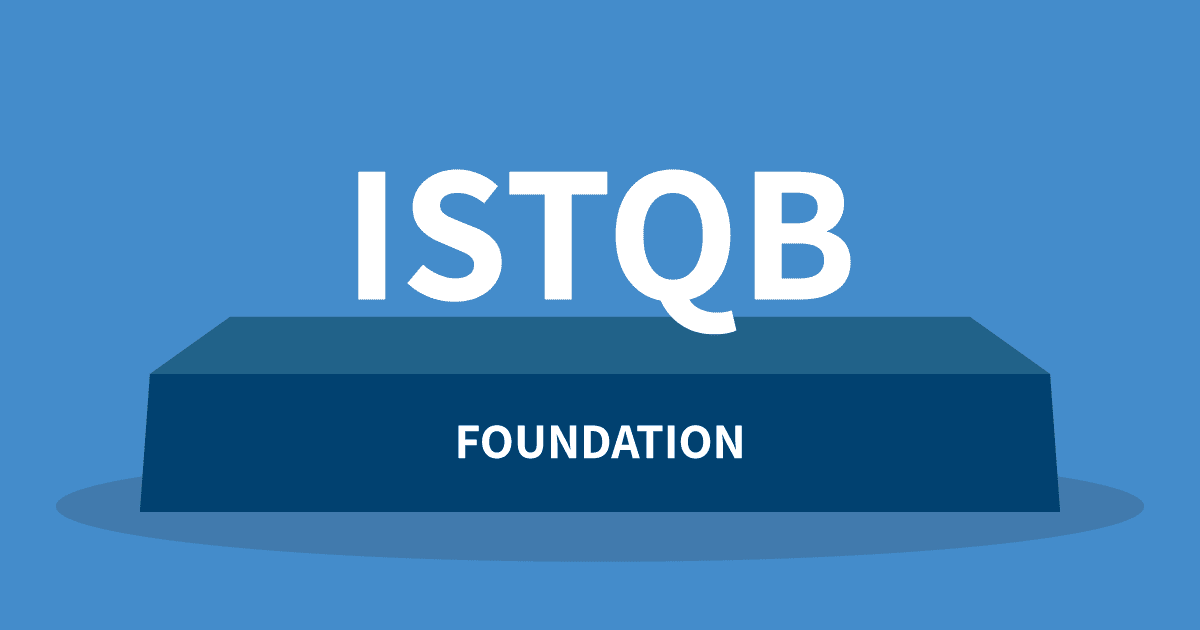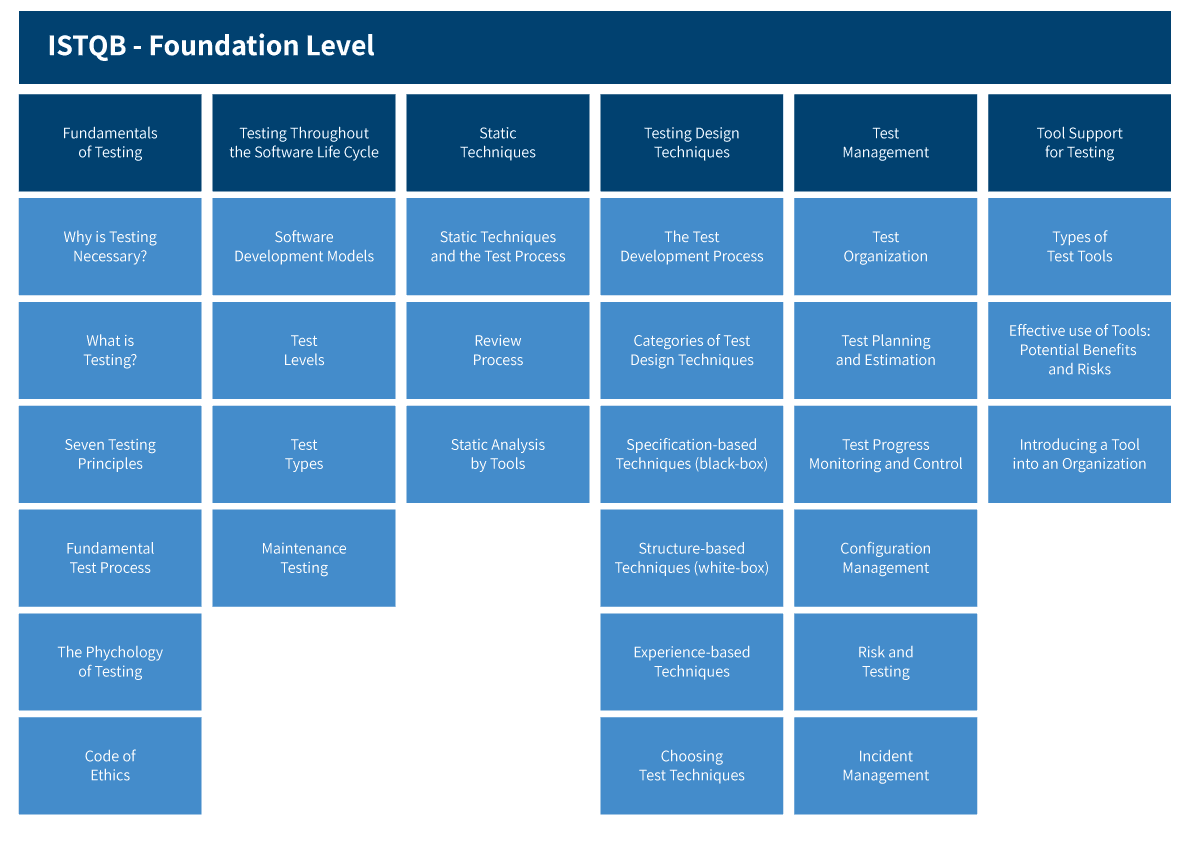The ISTQB Foundation (Core) Level certification exam is aimed at the aspiring candidate who want to begin their career in software testing.
ISTQB has put forward a well thought out syllabus for this exam, that covers the fundamentals of software testing. This article looks at the top level contents of this program, and the below illustration summarizes the contents.
Learning Objectives & Exam Structure
ISTQB has required learning objectives for each topic in the syllabus and have indicated the level of attained knowledge needed for each. There are four levels of study referred to as K1, K2, K3, and K4, reflecting the required cognitive level. The learning objectives for K1 level only require that you remember the concepts and terms discussed, so questions from those areas will be pretty straightforward. But at a K2 level of knowledge, you should understand the topic in more detail so the difficulty level of the questions there will be a bit higher. With K3 level topics, it is expected that you should learn the concepts in detail and eventually be able to apply this knowledge to finding solutions for questions or problems asked from those areas. K4 is the highest level where you will have to use your analytical skills to answer the questions set.
The exam contains 40 multiple choice questions, with each one based on the learning objectives. Each correct answer scores one point. You will need to score 26 points (i.e. 65%) in order to pass the exam. The duration of exam is 60 minutes, but if you take the exam in any language other than your native one, you can have an extended time limit of 75 minutes. The exam structure is 20 questions from K1,12 from K2, then eight questions each from K3 and K4.
The 6 Subject Headings that Comprise the ISTQB Foundation Syllabus
Fundamentals of Testing (K2)
This section covers the definition, principles, and the necessity of testing in software systems. It also explores the fundamental test process and code of ethics that testers should follow. You will also learn about the psychology of testing, and the meaning of some terms such as bug, error, failure, quality, and risk. The learning objective level is indicated as K2 for this section, so this part covers both K1 and K2 levels.
Testing throughout the Software Life Cycle (K2)
In this topic, you will learn about different test levels such as unit testing, integration testing, system testing and acceptance testing as well as different test types like functional, non-functional and structural. You will also learn about maintenance testing and various software development models and gain a familiarity with terms such as commercial off the shelf, V model, validation, verification, retesting, and regression testing. The level of LO is indicated as K2 for this section. So this part will cover both K1 and K2 levels of LO.
Static Techniques (K2)
In static testing technique you test a software without actually executing the software. So you will be using manual review of code, project documents etc. Here you will learn in detail about static testing techniques and difference between static and dynamic testing. Also you will learn about different review processes in software life cycle. Static testing and analysis is also possible via the use of different tools. So these tools are also discussed in this topic. The level of LO is indicated as K2 for this section. So this section will cover K1 and K2 levels of LO.
Test Design Techniques (K4)
In this topic, you will learn about different test design techniques and the test development process. Testing techniques such as black box testing, white box testing, and experience-based testing are also discussed. Candidates learn the basic test techniques that they will eventually use in future testing projects, making this section the most important part of the ISTQB syllabus. K4 level of knowledge needs to be applied to this topic, so a tester’s analytical skills are tested through the questions asked. So this section will cover K1, K2, K3 and K4 levels of LO.
Test Management (K3)
This topic discusses about independance testing within an organization and the team members to be considered for setting up a testing team. Also the topic recalls the tasks of test leader and a tester. You will also learn in detail about test planning and estimation techniques in this topic. Test monitoring and control are also discussed in detail here. The topic digs deep into software risks and widely discusses various types of risks and the importance of risk-based testing. It also discusses configuration management and incident management and their importance in software testing. The level of LO is indicated as K3 for this section. So this section will cover K1, K2 and K3 levels of LO.
Tool Support for Testing (K2)
Various tools can be used to make testing more efficient. Tools improve the efficiency of testing and they reduce the testing time, removing a lot of manual effort and errors from testing processes and techniques. This topic discusses various tools according to their purposes and how test tools support testing. It also summarizes potential benefits and risks of test automation tools which will allow you to pick the right tool for your organization. The level of LO is indicated as K2 for this section. So this section will cover K1 and K2 levels of LO.


